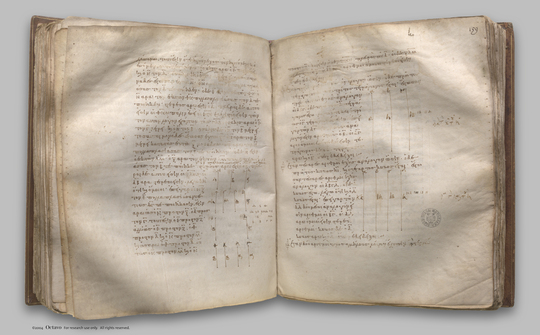index prev next | digilib folio 163

If four numbers be in continued proportion, and the first be cube, the fourth will also be cube.
| Ἐὰν τέσσαρες ἀριθμοὶ ἑξῆς ἀνάλογον ὦσιν, ὁ δὲ πρῶτος κύβος ᾖ, καὶ ὁ τέταρτος κύβος ἔσται. Ἔστωσαν τέσσαρες ἀριθμοὶ ἑξῆς ἀνάλογον οἱ Α, Β, Γ, Δ, ὁ δὲ Α κύβος ἔστω: λέγω, ὅτι καὶ ὁ Δ κύβος ἐστίν. Ἐπεὶ γὰρ τῶν Α, Δ δύο μέσοι ἀνάλογόν εἰσιν ἀριθμοὶ οἱ Β, Γ, οἱ Α, Δ ἄρα ὅμοιοί εἰσι στερεοὶ ἀριθμοί. κύβος δὲ ὁ Α: κύβος ἄρα καὶ ὁ Δ: ὅπερ ἔδει δεῖξαι. | If four numbers be in continued proportion, and the first be cube, the fourth will also be cube. Let A, B, C, D be four numbers in continued proportion, and let A be cube; I say that D is also cube. For, since between A, D there are two mean proportional numbers B, C, therefore A, D are similar solid numbers. [VIII. 21] |